Relaxed homeschooling is perhaps the most challenging homeschool philosophy to define and explain to others. Unlike other homeschool approaches, relaxed homeschooling doesn’t have a neat set of boxes to check to show adherence to a specific philosophy or curriculum. But after being a relaxed homeschooler for ten years, I can say with certainty that relaxed homeschoolers do have several important and identifiable characteristics.
Relaxed homeschooling is creating a customized education for your child that prioritizes strong family relationships. The child contributes to the planning, but the parents have the overall responsibility for the child’s education. The ultimate goal of relaxed homeschooling is to help the child develop her character and abilities so she is prepared to take the next steps after high school graduation whether it is for further education or employment. For Christians, this includes discipling the child to grow strong in the Christian faith during these important formative years.
Relaxed homeschooling should produce happy, peaceful, and thoroughly equipped children who have been raised in a family with strong relationships. It is a philosophy that focuses on understanding your child, partnering with your child, and then making the best choices for your child.
Relaxed Homeschooling Is Guided By The Parents’ Beliefs About Education
Relaxed homeschoolers have strong opinions about what it means to be educated and those beliefs drive their decisions. While they may consider the writings and approaches of experts, they don’t simply adopt someone else’s philosophy no matter how important or venerated that person may be. Relaxed homeschoolers have their own vision of what education should look like and they work that out in real life in their own way.
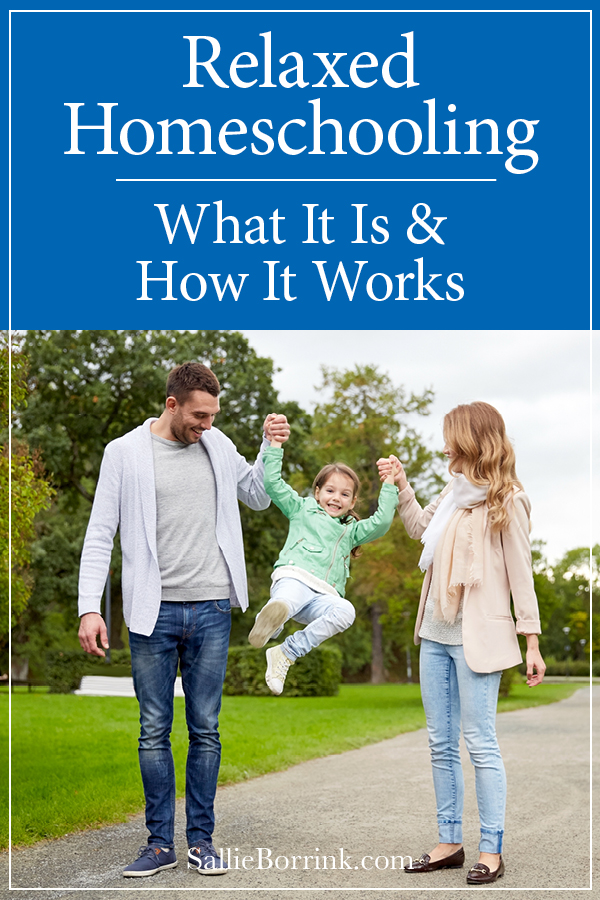
Relaxed homeschoolers focus on quality more than quantity. Demonstrating mastery where it is necessary is important. Ticking all of the boxes on a checklist or schedule made by someone who has never met their child is not a priority. Unless that checklist serves a real and valuable purpose in their homeschool, it has no use. The same is true of schedules, teacher’s manuals, and other guides created by unknown individuals.
Parents who choose a relaxed homeschool approach believe children are naturally wired to want to learn. Because of this, they place great value on creating an atmosphere of learning in the home. This includes providing learning opportunities and materials that fit with where the child is both developmentally and in terms of her interests.
Relaxed homeschoolers value interest-based learning, but they do not hand over all of the responsibility to the child. Instead, the parents gently and purposefully guide her in determining how to pursue her interests.
Relaxed Homeschooling Is Child-Focused But Not Child-Centered
Although the child has an important role in the family’s decision-making process, the overall experience is not child-centered. The homeschool does not revolve around the child’s wishes and desires. The parents still maintain a level of control and, ultimately, the final word on the educational process.
If the parent believes a certain subject is essential to the child’s education, then it will be a part of the process. The parents will seek the child’s input regarding the best way to approach the learning experience, but it will happen. The child doesn’t have veto power. This is perhaps the key difference between relaxed homeschooling and unschooling.
Relaxed homeschooling is not child-centered so, ultimately, the child does not make all the decisions and set the overall agenda. That lies with the parents.
Relaxed Homeschoolers Focus on Family Relationships
As a general rule, if the relationships in a relaxed homeschool family are healthy then the academics will easily flow from that. If there is trust between the parents and the child, it is much easier to work together to accomplish great things.
By contrast, the parents can diligently work to get the academics all neatly lined up but if the relationships aren’t right, none of it will be right. Relaxed homeschooling is relaxed because the family has placed an emphasis on having strong relationships. In fact, during the younger years parents may spend much more time on relationships than “academic” subjects. This is perfectly fine and even preferable. Laying a strong family bond in the early years will reap great rewards in the consequent years.
If parents are pushing their child in academic areas to the point it is damaging the relationship, then relaxed homeschoolers believe it is imperative to step back and reassess. There is no curriculum sequence, no requirement of the state, etc. that will ever be more important than the relationship of a parent with the child. Pushing through to stay on track or keep up with other homeschoolers is never worth it if it comes at the price of a loving and peaceful family.
The Curriculum Choices of Relaxed Homeschoolers
One of the first questions people usually ask other homeschoolers is about the curriculum they use. This can be a tricky question for relaxed homeschoolers because it is rarely a simple answer.
Because relaxed homeschoolers aren’t tied to a particular philosophy or person, they aren’t tied to a particular curriculum either. Instead they operate with the view that curriculum is chosen because it serves the child’s needs at this point in time. You don’t serve the curriculum. It serves you in a relaxed homeschool.
Most relaxed homeschoolers piece together their own collection of curriculum each year. While it is possible to be a relaxed homeschooler and purchase a formal curriculum or curriculum-in-a-box, it will rarely be used as designed. Some families might use workbooks because they have a child who genuinely likes them and they are an effective learning tool. Other parents use videos or online classes. Living books might fill a home. All of these are options used by relaxed homeschool families.
When children are young, learning with themes works well with relaxed homeschooling. Using a topic of interest is a highly-engaging way for young children to learn across the various subjects (history, reading, science, etc.).
Whatever the choice, curriculum for homeschool families is deliberately and carefully chosen because it meets a specific and identified need.
What Does a Relaxed Homeschool Day Look Like?
No two relaxed homeschooling families look the same. This makes sense because each one is developing a customized education for their particular child based on her educational needs, personal needs, and interests.
Because relaxed homeschooling is about developing a love of learning and is not curriculum-focused, every day can be different depending on what the child is pursuing at that time. It is flexible and can change from day to day, month to month, and year to year.
There is usually lots of low-key, open-ended time spent together. This includes time spent in wide-ranging conversations and simply being together as a family as each person pursues his or her interests.
As a general rule, relaxed homeschoolers have a family life based on daily rhythms and not schedules. There is a general flow and structure to the day, but there is no slavish adherence to a clock or set schedule for when certain subjects are done. Learning is done at the time it works best for the child. This might mean homeschooling in the afternoon or breaking up the homeschool day into smaller chunks spread out all day. There is no one way to “do” relaxed homeschooling each day. Relaxed homeschoolers live in a family atmosphere of learning all day.
Learn more about relaxed homeschooling in these posts:
- How We Ended Up Relaxed Homeschoolers and What It Looks Like
- Relaxed Homeschooling in Early Elementary – A Series
- Why We’re Relaxed Homeschoolers (and Not Unschoolers)
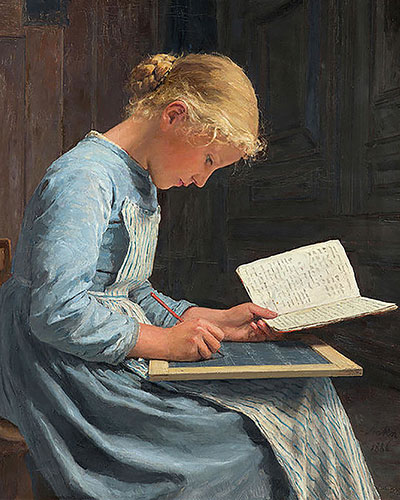

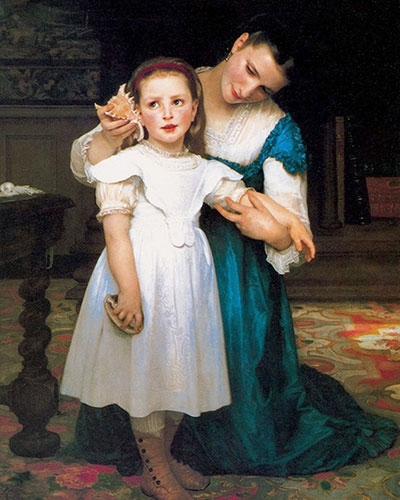

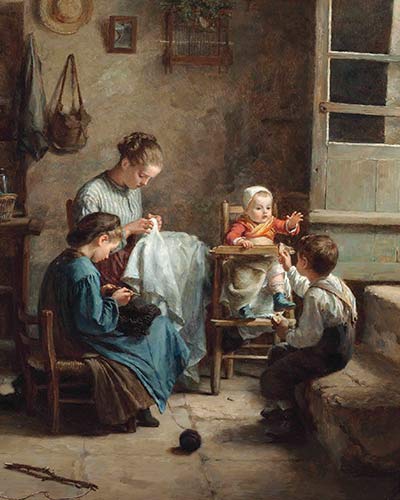


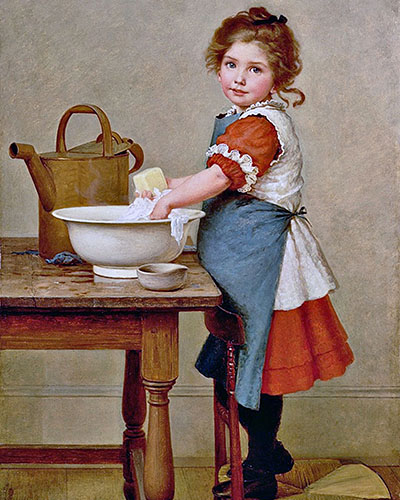








Thank you for your content. This is how we homeschool and I feel better about it now. Now I have a name to match our style. I also like how you referred to Ruthen instead of schedule. You are a blessing.
Hi Christi,
Thank you for your comment! I’m so glad this post helped you sort out some of your thoughts about homeschooling. I know it’s always encouraging for me to discover people who can put into words what what I’m feeling so I’m glad I could do that for you.
Sallie